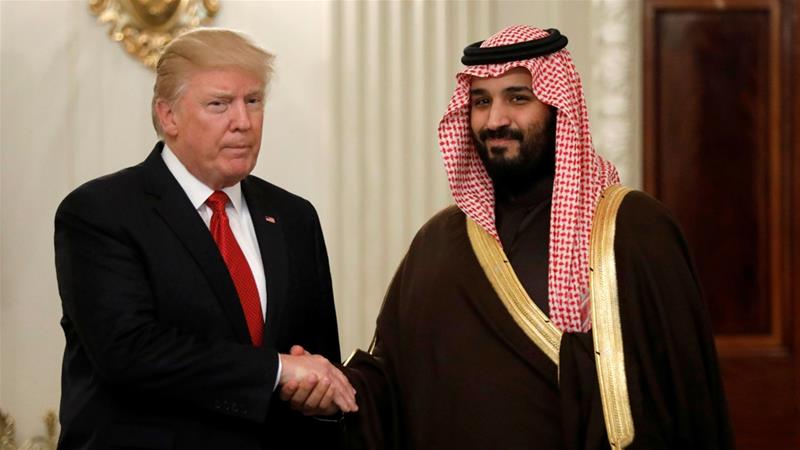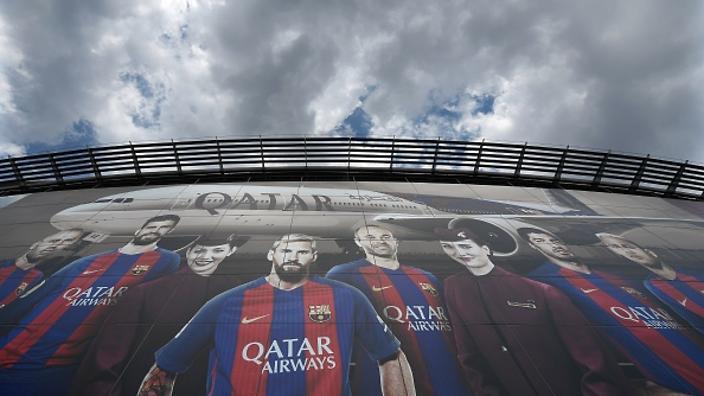Tag: Saudi Arabia
-
Ramadan fasting starts Saturday in Saudi Arabia
Saudi Arabia, the birthplace of Islam, has announced that the Muslim fasting month of Ramadan will begin on Saturday, a state media said on Thursday.
Ramadan is the ninth month of the Islamic calendar and is observed by Muslims worldwide as a month of fasting (Sawm) to commemorate the first revelation of the Quran to Mohammed according to Islamic belief.
This annual observance is regarded as one of the Five Pillars of Islam.
According to numerous biographical accounts compiled in the hadiths, Ramadan lasts 29 to 30 days based on the visual sightings of the crescent moon.
The beginning and end of Islamic months are determined by the sighting of the new moon.
Lebanon’s top Islamic authority, the mufti, said Ramadan would also begin in the country on Saturday.
A similar statement was made by officials in Iraq’s Muslim Sunni minority.
During Ramadan, Muslims have to abstain from eating, drinking and smoking from dawn to sunset.
Devout Muslims also mark the month by intense worship, performing special nightly prayers and reading Islam’s holy book, the Koran.
Fasting is one of Islam’s five pillars, alongside declaration of monotheism, prayer five times a day, alms-giving, and the pilgrimage to Mecca in Saudi
-

Saudi Arabia to sign trade, political deals with U.S. during Trump’s visit
Saudi Arabia confirmed on Thursday that it would sign commercial and political deals with the U.S. during President Donald Trump’s visit to Riyadh next week, Al Arabiya local news reported.
Saudi Foreign Minister, Adel Jubeir, told a news conference in Riyadh that an Arab-Islamic-American Summit, to be attended by 37 world leaders, would focus on combating terrorism, bolstering trade, investment, youth and technology.
Jubeir said the summit with U.S. would “open a new page” in terms of western countries’ dialogue with Muslim countries.”
He added that Saudi Arabia wanted to send a message to the West that Muslim countries were “not enemies’’.
He noted that Saudi Arabia was second after the U.S. in the fight against IS militant group.
He noted that “at the end of the summit, leaders will launch global counter-extremism centre in Riyadh, which will fight an “ideological battle.
“We will work with our allies, particularly U.S., to see that Iran is made to act like a normal country.
“As long as Iran threatens with terrorism, it is impossible to have normal relations with that country.”
NAN
-
‘You are a servant of merit,’ Saudi Arabia eulogises Oluwo of Iwo
An official of the Ministry of Justice, Kingdom of Saudi Arabia, Riyadh, Sheik Abdul-Azeez Alhajlaan, has said that the Oluwo of Iwo, Oba Abdul-Rasheed Akanbi, is a blessing to humanity.
He said this following the Oba’s outright condemnation of idolatry.
Alhajlaan described Oluwo a “servant of merit, appointed to lead the populace right in all ramifications.”
The cleric declared that the authorities of Saudi Arabia were intimated of the monarch’s preaching against idolatry and had come to declare support for him due to his position on idolatry.
A statement revealed that the Saudi delegation’s visit to the monarch in Iwo, Osun State, was facilitated by some Muslim scholars in the town, including Dr. Sirajudeen Asrau, Dr. Daud Baki, Dr. Buwaeb, Dr. Qosim Tijani, Dr. Imran and Mogaji Yaqub Baki.
Conducting Alhajlaan round the palace, the monarch said his spirituality was tied to his faith in God, adding that his antagonists had increased because he removed idols from his palace.
Oluwo said idol worshipping was never part of the Yoruba culture, while condemning the “wickedness” of some idols that request human beings as sacrifice.
Speaking on the need to eradicate some of the “awkward” cultures and traditions, Oba Akanbi said, “We are the only race in the world that sold their (past) generations to slavery.
“This is the work of our predecessors and it is still rampant among our folks today and you can see that in child trafficking and sex slavery.
“These practices that were inherited must stop because they do not indicate love at all.
“It is only our idols that request human beings as sacrifice. Offering tomorrow’s presidents, engineers, doctors, musicians, astronauts, chemists and so on for sacrifice is inhuman, uncultured and wickedness of first class order. It is time to challenge the status quo to liberate our people.
“Idolatry is not part of any culture.”
-

Bomb scare causes panic on Saudi airliner
Airport officials say an apparently mentally unstable man caused panic among passengers on a airliner heading for Cairo from Jeddah in Saudi Arabia when he threatened to blow up the aircraft.
Airport sources said that the 61-year-old man, a retired textile worker from Egypt, was subdued by security staff on the plane, operated by Saudi airline Flynas, and arrested when it landed in the Egyptian capital.
The man told police he was not aware of what he had done, according to the sources.
He was being questioned and was expected to be referred to a psychiatrist to determine his mental state.
State-run newspaper Ahramgate said no weapons or explosives were found with him.
Air security is a sensitive topic in Egypt.
An Egyptair plane crashed in the Mediterranean last year, killing all 66 people on board in so far unexplained circumstances, while a Russian plane came down over Sinai in 2015, killing 224 in an attack claimed by Islamic State.
NAN
-
Russia beats Saudi Arabia as China’s top crude oil supplier
Russia overtook Saudi Arabia in 2016 to become China’s biggest crude oil supplier for the first year ever, boosted by robust demand from independent Chinese “teapot” refineries.
Customs data showed on Monday that Russian shipments surged nearly a quarter over 2015 to about 1.05 million barrels per day (bpd), with Saudi Arabia coming in a close second with 1.02 million bpd, up 0.9 percent in 2016 versus the previous year.
China is the world’s second-largest oil buyer and the fastest-growing major importer.
While Saudi Arabia counts China’s state oil firms as backbone clients through long-term supply contracts, China’s independent refineries, nicknamed “teapots” due to their smaller processing capacity, saw Russia as a more flexible supplier.
For the teapot plants, authorised to import crude oil for the first time in late 2015, shipments from Russia’s Eastern ports are easier to process, coming in smaller cargo sizes at a closer proximity.
Russia may be able to maintain the top spot in 2017 as it expands exports of its East Siberian-Pacific Ocean (ESPO) pipeline blend crude.
Meanwhile, Saudi Arabia is set to shoulder the lion’s share of supply cuts agreed to last year by OPEC and non-OPEC producers.
“OPEC cuts means Gulf producers take a hit in terms of market share, even though most of their cuts are to Europe and U.S.
“Russia has an ESPO expansion coming up as well as supplies via Kazakhstan earmarked for China,’’ said Michal Meidan of Consultancy Energy Aspects.
State-run Saudi Aramco is expected to look to a new refinery under state-run CNOOC to lift sales.
For December, Russia also held the top spot with supplies up 4.8 percent from the same month a year earlier at 1.19 million bpd.
Saudi sales dropped nearly 20 percent from a year earlier to 841,820 bpd, data from the Chinese General Administration of Customs showed.
Total crude oil imports in December hit a record as refiners stepped up purchases ahead of a deal by oil-producing countries to reduce supply and bolster prices.
For the whole of 2016, imports gained nearly 910,000 bpd over 2015, the strongest annual growth on record and mostly driven by teapot buying.
Third-largest supplier, Angola, shipped 13 per cent more crude last year versus 2015, while No. 4 seller Iraq recorded similar growth.
China also boosted imports from South American producers last year with growth of 37.6 percent from Brazil and 26 percent from Venezuela, the data showed.
Imports from Iran expanded nearly 18 percent last year to a record 624,260 bpd, as Chinese state oil firms started to lift barrels from their investments in Iranian oilfields in addition to term supply agreements.
-
Oil steady after gains on Saudi output cuts
Oil prices were little changed on Friday after gaining nearly 1 percent the day before on news that Saudi Arabia had cut production to meet OPEC’s agreement to reduce output.
Saudi Arabia has been curbing oil output in January by at least 486,000 barrels per day (bpd) to 10.058 million bpd, fully implementing OPEC’s agreement to slow production, according to a Gulf source familiar with Saudi oil policy.
NYMEX crude for February delivery was down 7 cents at $53.69 a barrel by 0016 GMT, after closing up 50 cents on Thursday. For the week, the contract is likely to be largely steady.
London Brent crude for March delivery was yet to trade after settling up 43 cents at $56.89 a barrel.
Prices had fallen earlier on Thursday after data showed a surprisingly large increase in U.S. gasoline and distillate inventories.
U.S. crude stocks dropped sharply to end the year, the Energy Information Administration said, with a draw of 7.1 million barrels, but stocks of gasoline and distillates surged as refiners ramped up production to reduce crude inventories, a year-end practice to avoid higher taxes.

